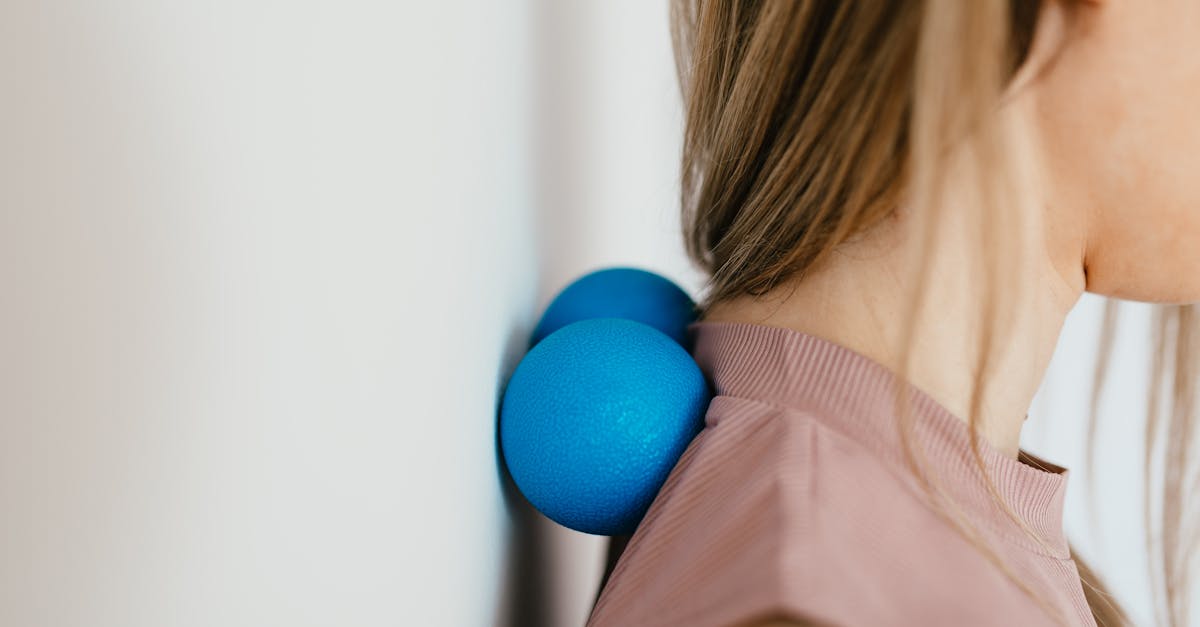In Short Dizziness related to anxiety is a common condition where feelings of unease can lead to dizzy spells or a sense of lightheadedness. Understanding this connection is vital for managing symptoms effectively. The benefits of addressing dizziness linked to anxiety include improved mental clarity and significantly reduced feelings of panic. Strategies such as deep breathing, staying hydrated, and accepting one’s emotions can foster calmness and relieve dizziness. By recognizing the interplay between anxiety and dizziness, individuals can embark on a path toward serenity. This holistic approach empowers individuals to regain their balance and live happier lives. |
Dizziness related to anxiety can be a daunting experience, often exacerbating feelings of unease and disorientation. When anxiety spikes, it can lead to symptoms such as lightheadedness or even a sensation of the room spinning, known as vertigo. To regain your serenity, it is essential to implement effective strategies such as practicing gentle breathing techniques, which help calm the nervous system and alleviate hyperventilation. Staying hydrated, engaging in physical activity, and learning to accept and process emotions are also key factors in managing this condition. If dizziness becomes persistent, seeking professional advice may be necessary to address underlying anxiety disorders and consider appropriate treatments.

Discover Pulse Align: Your Path to Natural Balance and Wellness
At Pulse Align, we believe in harnessing the body’s innate ability to achieve balance and well-being. Our innovative, non-invasive method employs gentle and imperceptible pulses to help restore your body’s natural posture. This holistic approach facilitates the recalibration of muscle tone, which often helps to reduce discomfort and restore a sense of calm. It’s about more than just comfort—it’s about fostering a deeper connection with your body and unlocking its potential for well-being.
Enhancing Comfort Through Natural Recalibration
Unlike traditional methods that may focus on specific discomforts or conditions, Pulse Align centers on the overall health of your body’s system. By promoting muscle tone symmetry and improved posture, our approach often leads to a natural easing of tension and a sense of relaxed equilibrium. Our clients report feeling more balanced and centered, as they allow their bodies to respond to gentle stimuli and recalibrate themselves organically.
Personalized Wellness Experience
Every body is unique and so is every journey to wellness. At Pulse Align, we prioritize a personalized experience that considers each client’s individual needs. Many of our clients have shared uplifting testimonials about how our services significantly reduced tension in the neck and back, improved their postural balance, and fostered a sense of overall wellness. It’s these stories that inspire us to continue our mission: to guide families in their journey towards optimal posture and wellness—together.
Join Us on Your Wellness Journey
Are you ready to embrace a holistic approach to wellness? We invite you to explore the benefits of Pulse Align and discover how our gentle, non-invasive techniques can support your health journey. Visit our website to find nearby locations in La Prairie, Mont-Royal, Terrebonne, and more, and to book a consultation for yourself or your family. Remember, Pulse Align complements your healthcare endeavors, always aiming to harmonize with your overall wellness objectives.
Disclaimer: Pulse Align’s services do not replace medical care. Clients are encouraged to maintain supervision from their healthcare professionals regarding any medical conditions.
- Controlled Breathing: Practice gentle breathing to prevent hyperventilation and reduce anxiety.
- Stay Hydrated: Drinking water can alleviate symptoms of dizziness.
- Sit Down: If dizziness strikes, sit immediately to avoid falls.
- Progressive Muscle Relaxation: This technique may help calm anxiety levels.
- Exercise: Regular physical activity enhances mood and decreases stress.
- Emotional Awareness: Accept feelings of anxiety as a necessary part of healing.
- Consult a Professional: Seek therapy or medication for chronic anxiety and dizziness.
- Identify Triggers: Keep a journal to pinpoint situations leading to anxiety-induced dizziness.

Dizziness can often be an alarming experience, especially when linked to anxiety. Understanding the connection between these two symptoms is crucial for reclaiming your sense of balance and peace. This guide outlines effective strategies to manage dizziness induced by anxiety, including breathing techniques, hydration, and psychotherapy, with an emphasis on adopting a holistic approach to wellness.
Understanding the Connection Between Anxiety and Dizziness
Many individuals report experiencing dizziness during periods of heightened anxiety. This sensation is often a result of the body’s response to stress, leading to hyperventilation and changes in blood circulation. Recognizing that this experience is both physical and psychological can be a first step in addressing it effectively.
Managing Symptoms Through Breath Control
One of the most effective ways to combat dizziness related to anxiety is through gentle breathing exercises. Controlled nasal breathing, particularly deep breathing from the diaphragm, can help mitigate the onset of dizziness by slowing your heart rate and decreasing feelings of panic. Aim for a technique that allows you to inhale deeply for four counts, hold for four, and exhale over six counts. This simple exercise can pave the way for calming your mind and stabilizing your body.
The Importance of Hydration
Staying hydrated is another critical factor in combating dizziness. When anxiety strikes, your body may require more fluids than usual. Dehydration can exacerbate feelings of lightheadedness and disorientation. Ensure you drink enough water throughout the day and aim to keep a water bottle handy—especially when faced with stressful situations.
Alternative Techniques for Reducing Dizziness
In addition to breathing and hydration, consider the practice of progressive muscle relaxation. This technique, where you systematically tense and then relax different muscle groups, can help redirect your focus from anxiety and reduce physical tension. Finding a few moments in your day to practice this method can enhance your overall sense of calm and tranquility.
Professional Help and Treatment Options
If dizziness persists or worsens, consulting with a healthcare professional is essential. Treatments may include psychotherapy to process underlying anxiety disorders, as well as medication adjustments if necessary. Addressing the root causes of anxiety often leads to an alleviation of associated dizziness, emphasizing the significance of a tailored, professional approach.
Incorporating Lifestyle Changes
Effective management of anxiety-induced dizziness doesn’t stop at simply addressing symptoms. Transforming your lifestyle through regular exercise, practice of mindfulness, and nutritious dietary choices can profoundly impact your mental and physical well-being. Engaging in mild to moderate physical activity, such as walking or yoga, can help alleviate tension and reinforce a sense of stability in both mind and body.
Learning to Accept Your Feelings
Emotional acceptance plays a vital role in managing dizziness. Allow yourself to experience your feelings without judgment. Remind yourself that anxiety and dizziness are temporary states and trust that your body has the capability to recover. Such emotional resilience is a critical component of achieving lasting serenity.
| Symptoms | Suggested Strategies |
| Dizziness | Practice controlled breathing to ease symptoms. |
| Anxiety Attacks | Engage in progressive muscle relaxation. |
| Lightheadedness | Sit down immediately to prevent falls. |
| Emotional Overwhelm | Accept your feelings and trust your brain. |
| Fatigue | Stay hydrated and drink water. |
| Physical Symptoms | Consider medications if prescribed. |
| Long-lasting Dizziness | Explore psychotherapy for anxiety management. |

Clients’ Transformative Wellness Journey: Regaining Serenity through Holistic Recovery
Many clients have found that their experiences with dizziness related to anxiety have significantly improved through the unique approach offered by Pulse Align. By harnessing the body’s natural ability to recalibrate, individuals feel empowered in their healing journeys. They are discovering how the combination of education, support, and holistic techniques aids in restoring balance.
In areas like Mont-Royal and La Prairie, clients report feeling more grounded and serene. They emphasize how Pulse Align has equipped them with the tools necessary to manage their symptoms effectively. The tailored methods not only address their immediate symptoms but also facilitate a deeper understanding of their overall wellness.
For instance, those living in Châteauguay have expressed gratitude for the personalized care they received. Many have shared stories of how learning to breathe deeply has transformed their experiences with anxiety and dizziness. They have learned techniques that not only calm the body but also improve their mental clarity.
Clients across different regions such as Deux-Montagnes and Sainte-Marie have also highlighted the importance of staying hydrated and engaging in gentle physical activity as part of their recovery. This practical advice, coupled with the expertise of Pulse Align’s team, has empowered them to take an active role in their healing.
In Chicoutimi, testimonials spotlight the comprehensive approach that uses neuromodulation techniques. Clients have reported that they’ve experienced remarkable improvements in their overall well-being, allowing them to navigate through life’s challenges with newfound confidence and reduced anxiety levels.
Furthermore, in regions like Saint-Jérôme and even as far as Panama City, the positive feedback continues to affirm Pulse Align’s role in facilitating the body’s natural recovery and balance restoration. Clients appreciate the supportive environment that encourages collaboration with their healthcare teams, ensuring that no one feels isolated on their wellness journey.
This emphasis on natural remedies and community support is what sets Pulse Align apart. It serves as a beacon for anyone grappling with anxiety-induced dizziness, guiding them back towards a place of serenity.
Dizziness is a debilitating experience that affects many individuals, especially those grappling with anxiety. The connection between these two conditions can often amplify feelings of unease, creating a vicious cycle that can be hard to break. While the sensation of dizziness can stem from numerous causes, anxiety often manifests physically, leading to sensations of lightheadedness or imbalance. This phenomenon raises critical questions about the underlying mechanisms and effective treatment strategies that can help individuals regain their serenity.
Understanding the interplay between anxiety and dizziness is essential for addressing these symptoms effectively. When an individual experiences anxiety, their body undergoes a series of physiological responses, including increased heart rate and altered breathing patterns. These changes can lead to hyperventilation, causing an imbalance in oxygen and carbon dioxide levels that often results in dizziness. Furthermore, the fear of dizziness itself can provoke further anxiety, creating an almost cyclical effect that can be overwhelming for many.
Fortunately, there are several strategies available to help mitigate dizziness associated with anxiety. Firstly, practicing controlled breathing techniques can be beneficial. By inhaling deeply through the diaphragm and exhaling slowly, individuals can counteract hyperventilation and calm the body’s stress response. This simple yet effective method not only alleviates dizziness but also fosters a sense of tranquility.
In addition to breathing techniques, it can be helpful for individuals to familiarize themselves with their body’s responses to anxiety and dizziness. Recognizing the early signs of dizziness allows one to take precautions such as sitting down immediately, thereby minimizing the risk of falls and injuries. Ensuing hydration is also crucial; ensuring adequate fluid intake can stave off symptoms related to dehydration, which can exacerbate dizziness and discomfort.
Individuals dealing with persistent dizziness due to anxiety may benefit from seeking professional help. Dr. Sylvain Desforges, an esteemed expert in the fields of osteopathy, naturopathy, and manual medicine, emphasizes the importance of tailored, evidence-based care. As the founding president of TAGMED clinics and the ACMA association, he has dedicated his career to tackling healthcare challenges with innovative approaches, particularly chronic pain management coupled with advanced technologies.
At TAGMED clinics, Dr. Desforges specializes in utilizing therapies such as spinal decompression, laser therapy, and shockwave therapy as part of a comprehensive treatment plan. His commitment to providing care that optimizes health and well-being is evident in the personalized services offered. By combining his expertise with the latest advancements in treatment options, Dr. Desforges aims to illuminate pathways for individuals seeking relief from anxiety-related dizziness.
Moreover, addressing the signs and symptoms of anxiety through psychosocial support, including psychotherapy and lifestyle modifications, can further support individuals in their journey toward regaining control over their lives. It is crucial for those experiencing dizziness related to anxiety to engage in self-exploration and emotional acceptance. By understanding the body’s responses and employing effective coping mechanisms, individuals can foster resilience and navigate their symptoms more effectively.
Ultimately, prioritizing well-being through a multidimensional approach is essential for overcoming dizziness associated with anxiety. Integrating physical, psychological, and holistic treatment strategies can empower individuals to reclaim their serenity and navigate their experiences with confidence.
Neuro-vertebral Decompression Technology by TAGMED: A Comprehensive Overview
Mechanism of Action
The neuro-vertebral decompression technology offered by TAGMED operates through a controlled and progressive traction force applied to the spine. This therapy effectively increases the space between vertebrae, allowing for a significant reduction in pressure on the intervertebral discs and nerve roots. By creating this additional space, the therapy promotes better fluid circulation in the targeted areas. As a result, the process aids in reducing inflammation, thereby alleviating pain and discomfort that patients commonly experience due to conditions like disc herniation, disc bulging, or spinal stenosis.
Specific Benefits
This non-invasive method has been shown to effectively relieve chronic pain and symptoms associated with various spinal disorders. The technique significantly decreases the pressure exerted on nerve structures while optimizing fluid circulation around the affected discs. This not only fosters quicker recovery but enhances patients’ overall quality of life. Patients reporting discomfort related to anxiety-induced dizziness can find an effective solution, as alleviating the physical pain often leads to a decrease in anxiety levels.
Comparison with Other Treatments
When comparing TAGMED’s neuro-vertebral decompression technology to other common treatment approaches such as pain medications, corticosteroid injections, surgery, or traditional physical therapy, its unique benefits become clear. Unlike invasive procedures that may come with various risks, TAGMED’s method is non-invasive and focuses on the body’s natural healing processes. By minimizing reliance on medications, patients can experience fewer side effects and achieve a faster recovery time, making it an attractive alternative for those suffering from chronic pain or dizziness related to anxiety.
Case Studies or Testimonials
Numerous patients have reported successful outcomes with TAGMED’s neuro-vertebral decompression technology. For instance, cases have emerged where patients experiencing debilitating chronic pain associated with spinal disorders have noted a significant and lasting reduction in their symptoms. These testimonials often highlight a faster return to daily activities, a marked decrease in dependency on pharmaceutical treatments, and an overall improvement in well-being. Such evidence underscores the therapy’s efficacy and potential as a critical resource in managing chronic pain symptoms.
For more information on the relationship between anxiety, dizziness, and treatment options, please refer to articles from reputable sources such as Healthline and The Vertigo Doctor.
Experiencing dizziness as a result of anxiety can be a disorienting and unsettling challenge. This connection is not only evident but also profoundly impactful on one’s quality of life. Understanding the underlying mechanisms that lead to this sensation is the first step toward recovery. As anxiety surges, the body’s response can lead to a pronounced sense of lightheadedness or spinning, and recognizing the triggers can empower individuals to tackle these episodes more effectively.
Employing techniques such as gentle breathing exercises can significantly contribute to alleviating the immediate effects of dizziness. Breathing from the diaphragm helps to counteract feelings of anxiety and works to stabilize the body’s autonomic responses. Simple tasks like lying down in a safe position can also mitigate risks associated with fainting, providing both physical and psychological comfort.
Moreover, integrating progressive muscle relaxation into daily routines can serve as a powerful tool in managing anxiety-induced dizziness. This approach not only addresses physical symptoms but also promotes an overall sense of calm. It’s also crucial to maintain proper hydration, as dehydration can exacerbate feelings of dizziness.
Finally, seeking professional guidance through psychotherapy, medication, or lifestyle modifications can offer substantial relief for those who struggle with generalized anxiety disorders leading to dizziness. By actively engaging in methods to calm the mind and body, individuals can reclaim their sense of balance. Ultimately, understanding the relationship between dizziness and anxiety paves the way to better management strategies, fostering a path to renewed serenity and well-being.

Do you suffer from a chronic condition that responds little or not at all to conservative treatments?
At Pulse Align, we offer a non-invasive and innovative approach that aids in restoring the body’s natural balance and posture through gentle, imperceptible pulses. This method is designed to help promote a harmonious state within your body’s functions, which can lead to a noticeable reduction in muscle and joint tension. By supporting the body’s natural recalibration process, clients may experience an enhanced sense of *serenity* and well-being.
Our philosophy at Pulse Align is rooted in the belief that true wellness comes from within. We do not focus directly on discomfort or conditions but rather on assisting the body in its journey to recalibrate naturally. Through our gentle methods, clients often report remarkable improvements in comfort and posture, allowing them to engage more fully in their everyday lives. The result is an empowered sense of equilibrium that extends beyond the physical.
Pulse Align thrives on a personalized approach to wellness, celebrating the unique needs of each client. Our testimonials tell the stories of individuals who have experienced inspiring upturns in their overall wellness, reduced tension in their neck and back, as well as a sense of relief from various states of imbalance. The feedback from clients emphasizes how their journey at Pulse Align fosters not just improvements in physical sensations but also an uplifting of their overall quality of life.
We invite you to explore our Pulse Align website to discover more about our services and find a location near you in cities such as La Prairie, Mont-Royal, Terrebonne, and many more. Booking a consultation is straightforward, and we encourage you to reach out for both yourself and your family members. Remember, the gentle methods used in Pulse Align complement your existing healthcare services, working harmoniously alongside your wellness journey. Experience our safe, non-invasive, and family-friendly approach to enhancing your well-being.
To learn more about our services and book an appointment, visit our website: Pulse Align.
Frequently Asked Questions
Vertigo
- La respiration profonde aide-t-elle à calmer un vertige ?Une respiration lente et profonde peut réduire l’anxiété et aider à mieux gérer la sensation de vertige.
- Les acouphènes accompagnent-ils souvent les vertiges ?Dans la maladie de Ménière, les acouphènes (bourdonnements) sont courants. D’autres causes de vertiges n’impliquent pas forcément des acouphènes.
- La manœuvre d’Epley est-elle efficace contre le VPPB ?Oui, cette manœuvre permet de repositionner les cristaux dans l’oreille interne, soulageant les vertiges dans la plupart des cas.
- Les infections de l’oreille peuvent-elles provoquer des vertiges ?Oui, une infection ou une inflammation de l’oreille interne (névrite vestibulaire) peut provoquer des vertiges soudains et intenses.
- Does deep breathing help calm vertigo?Slow, deep breathing reduces anxiety and may help manage vertigo sensations.
- Les vertiges peuvent-ils être liés à la pression artérielle ?Une hypotension orthostatique (baisse de la pression en se levant) peut causer des étourdissements. Des problèmes circulatoires cérébraux peuvent aussi déclencher des vertiges.
- Should anti-vertigo drugs be taken long-term?They’re generally short-term. Long-term management should address the root cause.
- La rééducation vestibulaire prend-elle longtemps ?Cela dépend de la cause et de la gravité. Quelques semaines à plusieurs mois sont parfois nécessaires pour une amélioration significative.
- Les médicaments peuvent-ils soulager les vertiges ?Certains médicaments (anti-vertigineux, antiémétiques) peuvent aider, mais c’est le traitement de la cause qui est essentiel.
- Les infections virales provoquent-elles des vertiges ?Oui, la névrite vestibulaire, souvent d’origine virale, provoque des vertiges aigus, nausées et troubles de l’équilibre.
Sophie Morel believes that knowledge is the most powerful step toward healing—and she’s here to illuminate the path forward for anyone facing the challenges of vertigo. At Pulse Align, Sophie not only highlights the latest breakthroughs in neuromodulation and non-invasive health technologies but also translates complex research into practical, everyday guidance. Her approach is grounded in empathy and fueled by a genuine drive to help readers find balance, both literally and figuratively. From exploring advanced treatments to sharing firsthand patient stories, Sophie’s heartfelt advocacy ensures that no one has to face the spinning world of vertigo alone.
Medical Disclaimer
The information and advice provided on this site do not replace the advice, diagnosis, or treatment of a healthcare professional. Please note that the author of this article is neither a doctor nor a specialist in a medical specialty as defined by the Collège des médecins du Québec. Manual medicine, functional medicine, and sports medicine as described on this site exclude any medical treatment or diagnosis made by a doctor or medical specialist. Always consult your doctor for any medical questions. For more details, please read our complete Legal Notice.
References
- Grubb, B. P. (1999). Pathophysiology and differential diagnosis of neurocardiogenic syncope. The American Journal of Cardiology, 84(8), 3–9. https://www.sciencedirect.com/science/article/pii/S0002914999006918
- Nanda, A., & Tinetti, M. E. (2003). Chronic Dizziness and Vertigo. In Geriatric Medicine (pp. 995–1008). Springer-Verlag. https://doi.org/10.1007/0-387-22621-4_68
- Guerra, J., & Cacabelos, R. (2019). Pharmacoepigenetics of vertigo and related vestibular syndromes. In Pharmacoepigenetics (pp. 755–779). Elsevier. https://www.sciencedirect.com/science/article/pii/B9780128139394000280
- Jaradeh, S. S., & Prieto, T. E. (2003). Evaluation of the autonomic nervous system. Physical Medicine and Rehabilitation Clinics, 14(2), 287–305. https://www.pmr.theclinics.com/article/S1047-9651(02)00121-3/abstract
- (20+) Facebook. (n.d.). Retrieved December 19, 2024, from https://www.facebook.com/
- Bracher, E. S., Almeida, C. I., Almeida, R. R., Duprat, A. C., & Bracher, C. B. (2000). A combined approach for the treatment of cervical vertigo. Journal of Manipulative and Physiological Therapeutics, 23(2), 96–100. https://www.sciencedirect.com/science/article/pii/S0161475400900745
- Okada, M., Matsuto, T., Satoh, S., Igarashi, S., Baba, M., Sugita, O., & Okada, M. (1996). Role of pulse wave velocity for assessing autonomic nervous system activities in reference to heart rate variability. Medical Informatics, 21(1), 81–90. https://doi.org/10.3109/14639239609009013
- Li, Y., Yang, L., Dai, C., & Peng, B. (2022). Proprioceptive cervicogenic dizziness: a narrative review of pathogenesis, diagnosis, and treatment. Journal of Clinical Medicine, 11(21), 6293. https://www.mdpi.com/2077-0383/11/21/6293
- Collet, C., Vernet-Maury, E., Miniconi, P., Chanel, J., & Dittmar, A. (2000). Autonomic nervous system activity associated with postural disturbances in patients with perilymphatic fistula: sympathetic or vagal origin? Brain Research Bulletin, 53(1), 33–43. https://www.sciencedirect.com/science/article/pii/S0361923000003063
- ALSharif, D. S. (2021). An Examination of the Potential for Autonomic Nervous System Responses and Postural Sway to Serve as Indicators of Visual-Vestibular Mismatch. Temple University. https://search.proquest.com/openview/8f9dec4952045e09ec36542185cffc12/1?pq-origsite=gscholar&cbl=18750&diss=y




